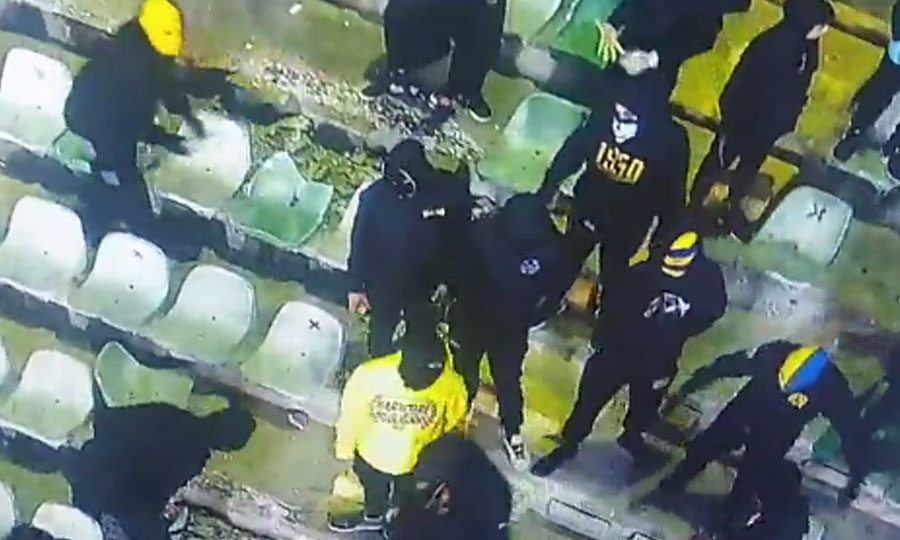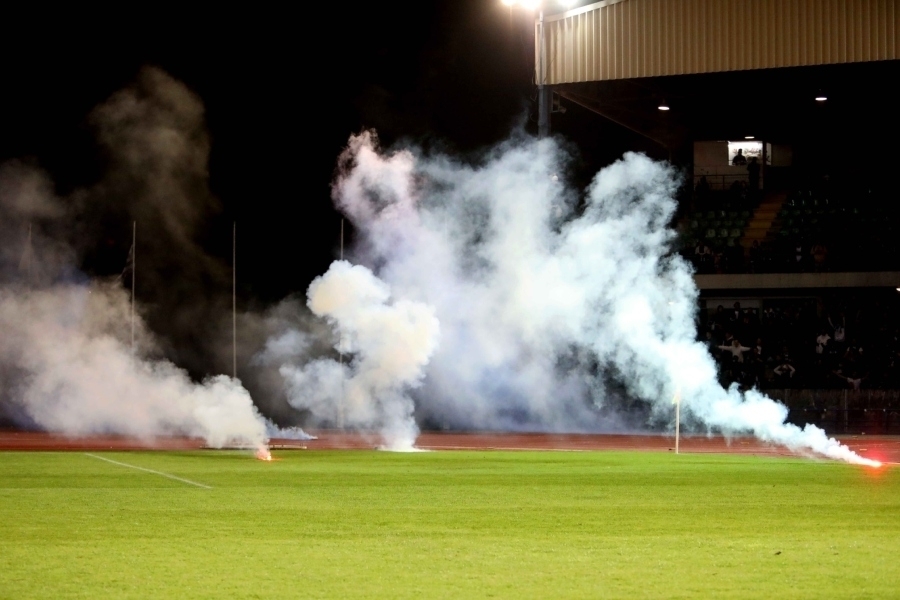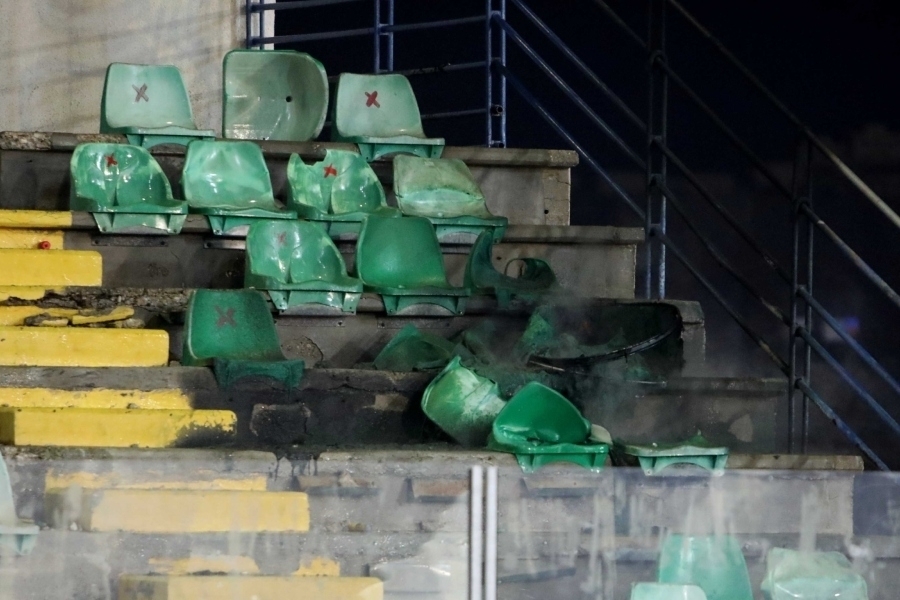

Apostolos Tomaras
Violence is triumphantly emerging as the winter champion before the first cycle of the football league in Cyprus is fully over, and no one in charge appears to be concerned. Images from Limassol, where unidentified individuals are frantically attempting to destroy the Tsirios Stadium before the restoration work begins, as well as what happened outside the stadium in other nations, may have moved some individuals to at least resign and return home for decency's sake. Almost every month since the start of the football league, a group of troublemakers has been destroying any notion of law and order, irreparably exposing the state, institutions, and clubs by reminding us who the bosses are in football stadiums. At the same time, the state watches with apathy what happens once a month in a stadium, the CMP, the championship's organizing authority, has no reflexes in the face of events, and the police continue the classic method of guerrilla warfare outside the stadiums with the troublemakers while the football clubs, like Pontius Pilate, wash their hands.
The incidents
With the implementation of the new law in 2017, all the officials crowded in front of the TV cameras, boasting that they had discovered a way to reduce violence in stadiums. The ensuing health crisis and restrictive measures kept the initial illusion alive, but it crumbled like a house of cards once normalcy was restored in the stadiums. Whatever description is used, it is insufficient to describe the situation on the fields. The people in charge of everything were yelling about how the fan card, cameras, and control system would fix the problem. Since going back to the stadiums, the violence issue has demonstrated that nothing has changed. In the face of the widely publicized measures, stadium controls are proving to be non-existent. Is anyone responsible for answering the question of who passed firecrackers into the pitch? Is there anyone who can answer for the damage to the grandstand's concrete floor? Is anyone accountable for the discovery of fireworks and flares in the hands of rioters and their use as weapons in reaction to the decision to postpone the match?
The police
Faced with the situation that has arisen since the start of the football league, the Police recommended an easy solution after the previous events at Tsirio Stadium. The restriction on the movement of certain teams' fans. A recommendation that was turned down. The police have been stripped of the authority to control stadium entry under the new law. Control was taken over by the clubs, who have the first and final say in matters of security. The police cannot enter the stadiums unless the stadium security officer, who is appointed by the club in question, gives the go-ahead. The police in this case limited themselves to monitoring events through the stadium's closed circuit before deciding, along with the stadium security officer and agents from the two teams, AEL and Apollon, that the match could not take place for security reasons. A decision that generalized incidents that occurred outside of the stadium. The police argue that they acted within the established framework and had no choice but to respond in the same manner in the face of the violence they were called upon to deal with. According to police sources, apart from the repressive role entrusted to them, the law does not create conditions of deterrence for those who are arrested. It is specifically stated that penalties are provided, including a fine of 500 to 800 euros and a six-month suspension from playing fields.
Associations
It is important to respond to the Tsiriou officials' public admissions that there was talk in Limassol the day before Sunday's game that some fans would start the de facto demolition of the stadium early. Kostas Christodoulou Tsigaridis, the head of the stadium's technical services, told SPOR FM that in recent days, there had been rumors that some people planned to cause damage "instead of celebrating the last game at Tsirios," and that the police had been made aware of this through correspondence. The Police's response that the information was vague cannot be regarded as satisfactory, just as their stance regarding the difficulty in identifying the individuals is not satisfactory given that the majority of them entered the stadium wearing hoods, which is against the law.
[This article was translated from its Greek original]































